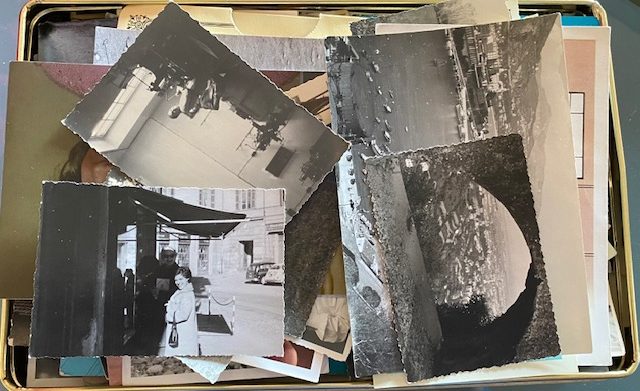Murder in my mother’s family no one cared about

This story is very personal, and I have been very reluctant to write about it, until now. It is something I rarely speak about. Now, I have decided to share it with this community, as I know that readers will have sensitivity and compassion. As many women know, unfortunately, the term “feminicide” means the murder of a woman, whose only fault is exactly being a woman.
To tell you what happened, I have to ask you to imagine your life back at the beginning of the last century, around 1920, when the war was still far, and people didn’t know a lot about the totalitarian regimes that were taking shape in Europe. This story took place in Italy, in a small town in the north.
People were generally poor, they were mainly farmers or sometimes artisans. Poor families couldn’t afford to pay for their children’s studies, and a few lucky rich kids could attend the school. So, even young children had to work.
It was a tough life: an illness could wipe out a whole generation, as it had just happened with the Spanish flue. A shortage of food could mow down whole countries, as it happened in Ireland; people who could migrate filled the ships to America. But, even if nothing so horrible happened, life was a calendar of agricultural tasks, family engagements, and religious duties.
There were a few rich families who could escape such a difficult life. The middle-class was mostly missing.
Where my relatives lived, it was exactly like this: my great-grandfather had nine children, seven of them were girls. They were farmers, maids, and waitresses. A bunch of rich families divided the properties of the whole town.
When WWII arrived, my nine relatives had all grown up, and they were from 40 to 20-year-old. They had been lucky enough to grow up, and the elders were married.
But the youngest daughter, one of my mother’s aunts, was still unmarried. She worked as a waitress and she had met a rich guy; I don’t know if she met him while she was on service or elsewhere. They started dating. I saw her picture: she was quite beautiful, although a bit toughened by those times events. In the picture, she looks strict, but maybe she was just not used to taking pictures.
In 1941, the war was burning the whole of Europe. My mother’s aunt spent her days working, looking for shelter from the war, and sometimes meeting her friend. The guy had a huge house, with an inner garden and a big stairway from the ground floor to the first floor.
In that horrible year, one night, my mother’s aunt died.
In my mother’s tale, some night watchmen were passing near the house, when they heard some faint moan. They entered the house, and they found the girl down the stairway. She was laying unconscious.
She was taken to the hospital, where she died after a few hours.
The guy she was dating had to stand trial, but no one could prove he was guilty. His defense convinced the judge that she fell on the stairs, while her boyfriend was already sleeping and unaware of what had happened. He could afford a very good lawyer; he was a male in a patriarchal society; the accident had taken place in war times when censorship erased crime news from newspapers.
Immediately after the trial, the boy and his family sold every property, and they went to America, from where they never came back. The official reason was that they were Jewish, and they wanted to escape the nazi persecution. In fact, it was a very good reason, but…
What made me think about a feminicide is that the guy’s family offered an important amount of money to my great-grandfather, as a sort of compensation. Besides, the timing of their getaway is a bit inappropriate.
There are also two main reasons why I have always thought she had been killed. First of all, the differences between them were remarkable and unsustainable; I have always thought that it was maybe difficult for his family to accept that she was the only one who would have benefitted from that relationship. Besides, it was not a well-established habit to let a girl go back home alone. The alibi was weak.
But, he might have been innocent.
Indeed, the fascist squads might have “used” my mother’s aunt as an example of what happened to women who had a relationship with a Jewish. Her death might have had political and racial motives. This belated explanation is even more horrible, as her killers might have never paid for their crime, and her boyfriend might have faced a false accusation. The night watchmen who found her might have been her killers, and their tale of how they found her might have been properly recreated.
Nothing changes for her. She died awfully, through someone she trusted. No one paid for this crime.
The trial was closed with the word “accident”, meaning that she fell from the stairs. No one investigated any further, as she was a woman, poor and worthless. It had been easy to depict her as a no-good brat: she had an affair without being married, in a catholic country. In an age of empty moralism, a killed woman was just asking for trouble.
Anyway, no one is still alive now. Whoever knew something cannot tell anything anymore. As this story occurred in times dominated by war, censorship, and tyranny, it is almost impossible for me to piece together the circumstances which might explain facts. Those were times when a woman’s life was worthless, and the word feminicide was not even used. And no one but her family cared about her.
Be the first to comment